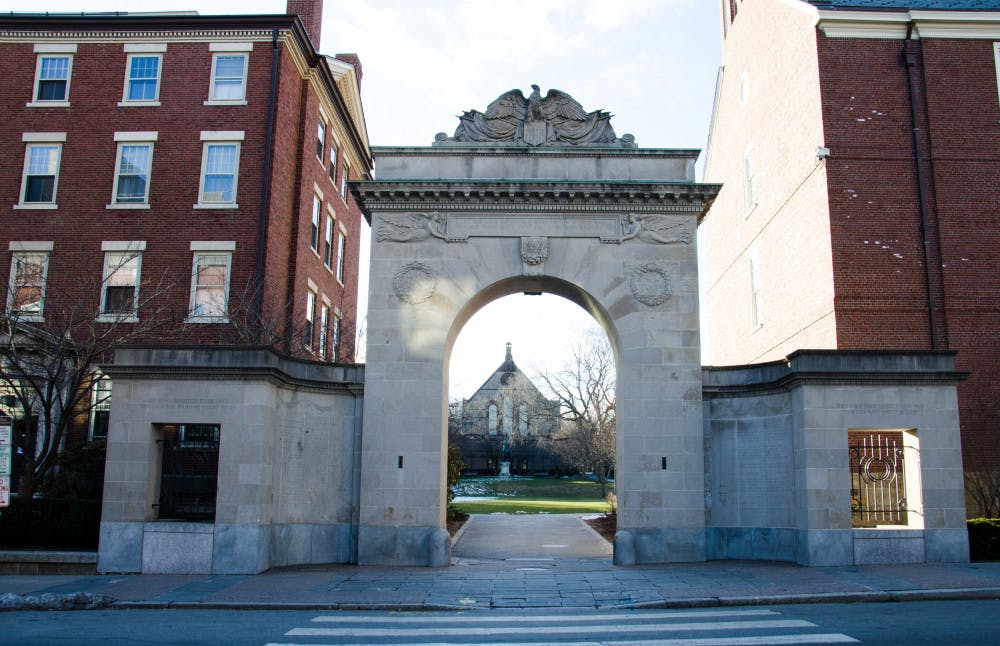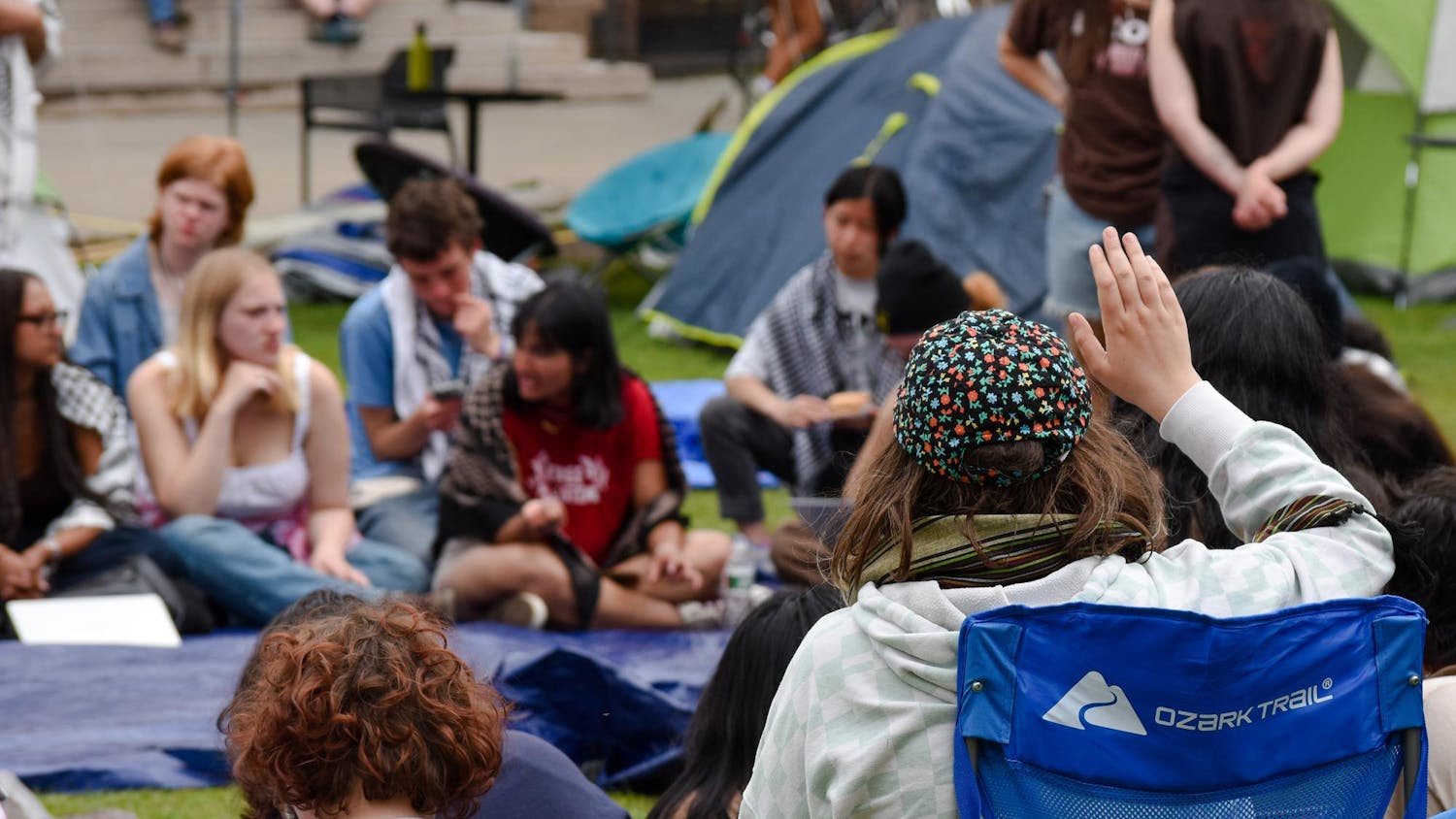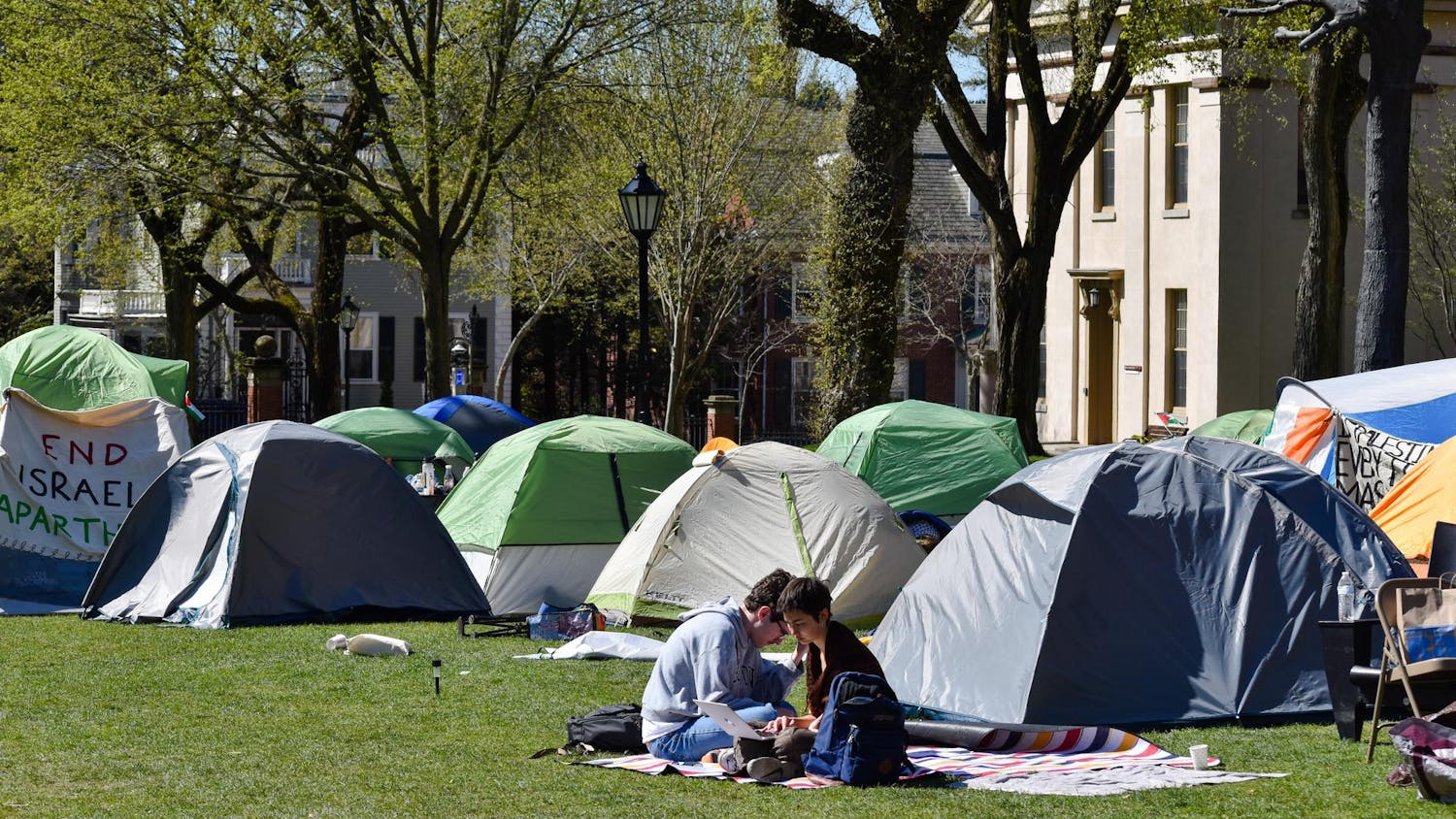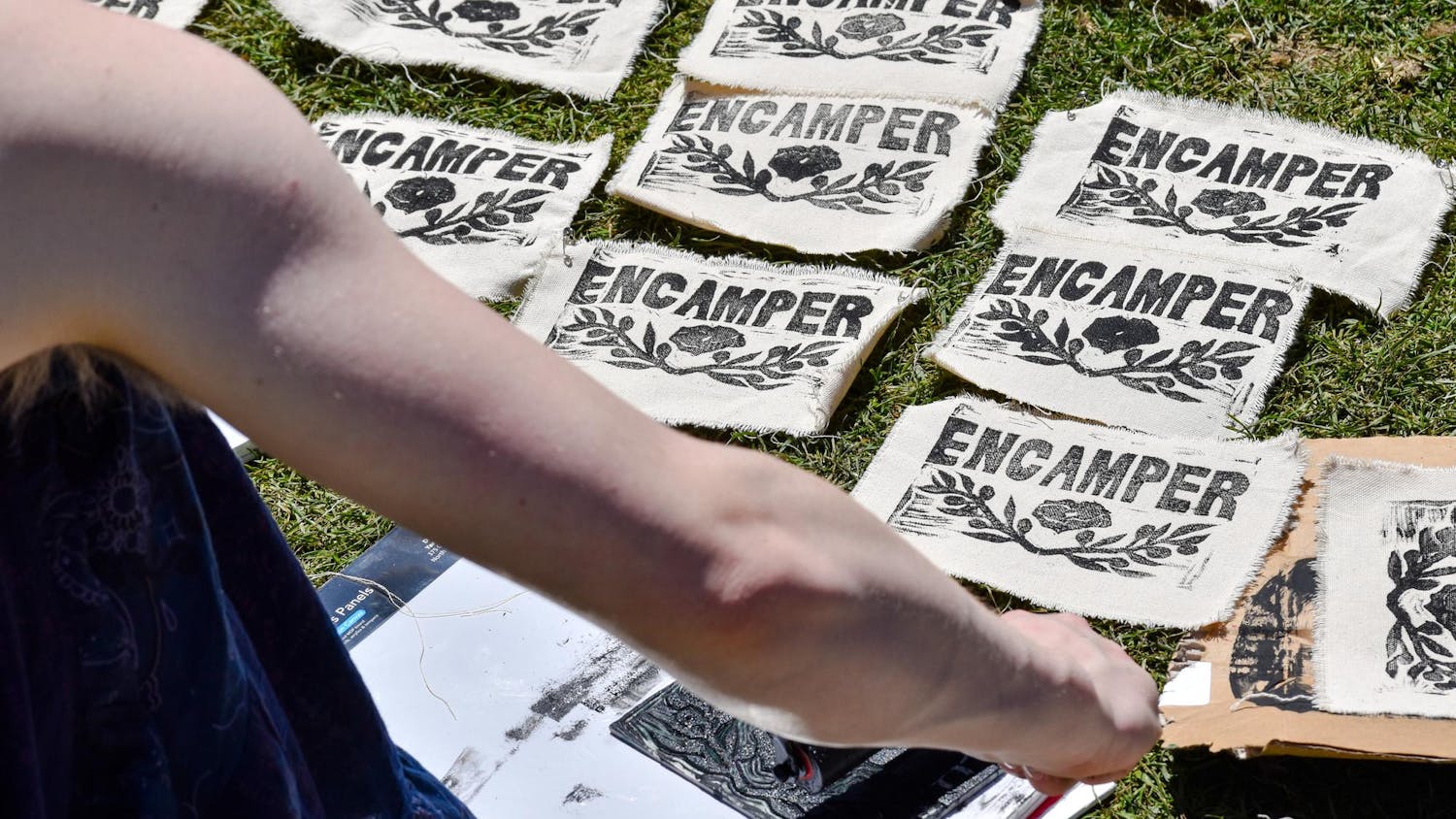The University has implemented a number of measures in order to increase veteran admittance as current student veterans continue to build a community on campus. Most recently, the Office of Admission announced Jan. 11 that it would waive the application fee and guarantee a phone interview for all “U.S. military service members and veterans who complete an undergraduate application,” according to its Facebook page.
These changes are meant “to lower the barrier to entry for submitting an application,” said Dean of Admission Logan Powell. Having veterans as students on campus “is one of the most important things we can do as an institution and as a country to support our veterans,” he said.
The University plans to increase its number of student veterans to match those of other private universities around the nation, said Karen McNeil, program director in the Office of Student Veterans and Commissioning Programs.
“Looking nationally and (at) the local scene, most public colleges and universities have something like 3 to 3.5 percent of the student population as student veterans, and for private universities it’s about 1 percent,” McNeil said. “Right now, at Brown, we are at 0.25 percent.”
To increase the number of veterans on campus, the University first needs to attract more applicants, McNeil said. There are a number of barriers that dissaude veterans from applying to private universities like Brown, Powell said.
Many veterans lack adequate college counseling services which can deter application to selective schools, Powell said.
Additionally, some veterans may identify as first-generation college students, and “the idea of getting out of the military and going to a place like Brown is something that is just not part of their world view,” McNeil said.
The University is focused on increasing communications to veterans after they leave the military to boost applications, McNeil added.
Powell and McNeil visit military bases across the nation to speak with active-duty forces about transitioning to college life after finishing their service. The University is also working with a number of programs that help veterans who are thinking about applying to college, Powell said.
While the majority of current student veterans attend the University through the Resumed Undergraduate Education program, the administration hopes to encourage more veterans to apply through other means, such as the transfer pool or as first-year students when applicable. This would allow the University to admit more students since the RUE program has constrained funds, McNeil said.
The University refocused its effort to admit more veterans after students tore up American flags that were placed on the Main Green Veterans Day last fall, McNeil said.
The Office of Student Veterans and Commissioning Program was instructed by the admission and financial aid offices to “figure out how we can do something fast to increase the number we admit this year and then also (do) structural things for future years,” she said.
Despite the events that unfolded on Veterans Day, both McNeil and student veterans maintain that the University provides a supportive and welcoming community for veterans.
“We probably had a hundred other students who came forward to help us put the flags back up or who organized themselves to guard the flags or who came to the Veterans Day ceremony to show their support,” McNeil said. “I think it actually in the end showcased a really supportive environment for veterans.”
Michael Muir ’20, a former combat engineer in the marine corps, agreed with McNeil and recalled that he was “taken aback by the awesome response of the community” after the Veterans Day incident. Though known for its liberal environment, Brown has proven itself to be very welcoming, he said.
“I think a lot of these schools get applied a label,” Muir said in reference to Brown’s liberal reputation. “But there is more than just that. There’s people from across a broad spectrum (of experiences), and I like hearing Brown students voice their opinions.”
Tristan Hood ’17.5, who served in the Air Force for four years and completed two tours in Iraq, has assimilated well into Brown’s community, he said.
“There is no moment (when) I feel unwelcomed or like that oddball out,” Hood added.
Both Hood and Muir are members of the Brown University Student Veterans Society, which works to create a community for veterans as well as raise awareness of military and veteran issues. As president of the society, Hood is working to strengthen this on-campus network that formed in 2009.
Along with the existence of the BUSVS, both Hood and Muir agree that the unique role of McNeil and her office served as a major factor in their decisions to attend Brown and continue to provide support to them on campus.
Muir and Hood also hope to see the number of veterans grow as a result of the University’s recent initiative.
Muir emphasized the importance of relationships developing between veterans and students who might be “dictating policies that surround war and conflict,” Muir said. “It’s important that we grow together right here.”





